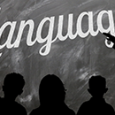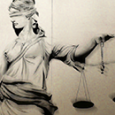- Website
- http://thefocalpoint.com
Articles by Category
Articles by Issue
Recent Comments
- Stephen Brodsky on Harming Children: Uncovering and Overcoming Bias When Defending Sex Crimes Against Children
- Laura on Courtroom Attire: Ensuring Witness Attire Makes the Right Statement
- Members selection — Court-Martial Trial Practice Blog — February 22, 2014 on Why Do We Ask Jurors To Promise That They Will Do the Impossible?
- Video: Pryor Greed and Lawyers | Parents Rights Blog on Ethical Issues in Racial Profiling
- On the relationship between ideological and demographic diversity on Inaccuracy in Political Self-Perception: Young Adults Are Not as Conservative as They Believe
- Taylor Bishop on Tips for Preparing the Expert Witness
- Thanks for stopping by…. « The Jury Room on Book Review- Social Media as Evidence: Cases, Practice Pointers, and Techniques
- Thanks for stopping by…. « The Jury Room on Book Review: The Juror Factor: Race and Gender in America’s Civil Courts
![Expressing Anger Increases Male Jurors’ Influence, but Decreases Female Jurors’ Influence, During Mock Jury Deliberations In her autobiography, Justice Sonia Sotomayor highlights emotion expression as a powerful persuasion tool—an argument that dates back to the 4th century B.C.E. (Aristotle, Rhetoric). Yet, expressing emotion has not always served her well. Her minority dissent from the Supreme Court’s decision to uphold Michigan’s affirmative action ban (Schuette v. […]](https://www.thejuryexpert.com/wp-content/uploads/anger_invert-201x130.png)
![Favorite Thing: Civil Jury Project While we have had discussion of the decline of civil jury trials for some time now, did you know someone is actually doing something about it? In addition to the article we have on their latest meeting (a conversation between project founder Steve Susman and Supreme Court Justice Sonia Sotomayor), […]](https://www.thejuryexpert.com/wp-content/uploads/favorite_thumb-1.png)
![Top 10 Most Accessed Articles of 2015 Every year we identify the top 10 articles chosen by our readers as most interesting in the calendar year. This year these articles are our top ten. Have you missed any of them? This is your chance to catch up! Does Deposition Video Camera Angle Affect Witness Credibility? By Chris […]](https://www.thejuryexpert.com/wp-content/uploads/TopTen2015_thumb.png)
![Note from the Editor, Spring 2016 In my part of the country spring has sprung and the wildflowers are out in force along with some brave redbuds, ‘tulip’ magnolias, and Bradford Pears. In other parts of the country, there is still a long ways to go til spring and I am very sorry about that reality. […]](https://www.thejuryexpert.com/wp-content/uploads/Editor_thumb-1.png)
![Understanding the Traumatized Witness One of the biggest challenges lawyers face is witness examination. You know your job, you have done the preparation and yet, somehow, at some point, your witness seems to transform right in front of your eyes. You know the story. Witness “X” has presented in your office as thoughtful, credible, […]](https://www.thejuryexpert.com/wp-content/uploads/trauma-201x130.png)




